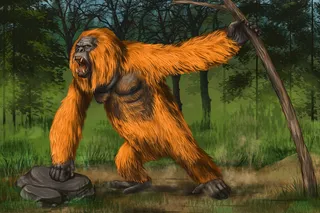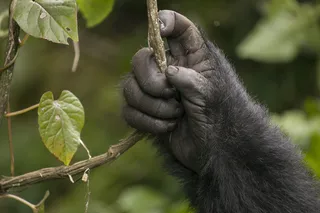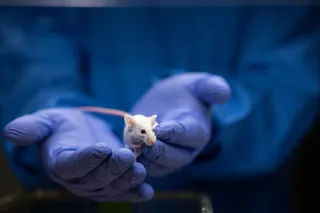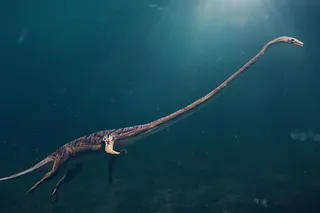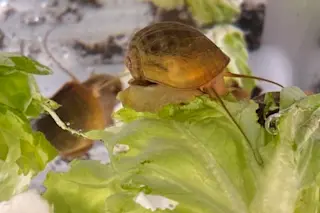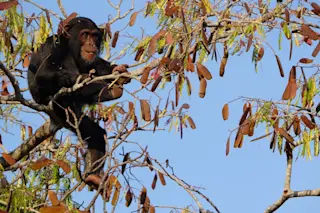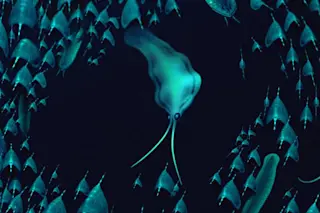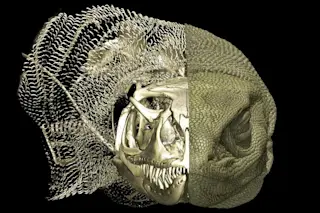This is a guest post by Vanessa Woods, author of Bonobo Handshake published in May 2010. Vanessa is a Research Scientist in Evolutionary Anthropology at Duke University and studies the cognition of bonobos at at Lola ya Bonobo Sanctuary in Congo.

I had been spending a fair bit of time studying bonobos at a sanctuary in Congo, so somehow I missed Sara Gruen’s runaway bestseller Water For Elephants, which is now being made into a movie starring Reese Witherspoon and Robert Pattison. But this year I was ready and anxiously awaiting the arrival of Ape House, Gruen’s new novel, and one of the few works of fiction ever written about bonobos. Writing a novel about bonobos is like trying to write about unicorns – most people don’t know they exist. However, unlike unicorns, bonobos are very real. They are our closest living relatives, along with chimpanzees, and share 98.7% of our DNA. But while chimpanzees are male dominated and occasionally beat their females and kill each other, bonobos are female dominated and their society has relatively little violence. The biggest accomplishment of Ape House is that it brings bonobos to life. The writing is effortless, as though Gruen sat down and wrote the book in one breezy afternoon. But don’t be deceived. The amount of research that went into accurately portraying these rare, gentle apes is enormous. Gruen places her apes in a language research institute – and covering the basics of non human language is a task that would intimidate most scientists. The Ape House bonobos are exceptional communicators. Like several real life apes before them, they use American Sign Language in a whole range of novel contexts, providing perhaps our most extensive and intimate experience with the thoughts and emotions of another species. Gruen spent time with the bonobos Kanzi and Panbinisha at the Great Ape Trust in Iowa, and some of her experiences are clearly portrayed in the book (Kanzi is notorious, like Ape House’s Bonzi, for being very particular about how his coffee is made).
begins with a dramatic kidnapping of the bonobos from their home at the language institute. They eventually turn up as stars in a reality television series, because, wait for it, bonobos have a lot of sex. If you think this is an outlandish idea, think again. I once had an excited documentary producer suggest that we simultaneously film the sanctuary bonobos and a house full of fraternity boys. I think the producer’s exact words were ‘the bonobos will be having sex while the guys are having sex – it’ll be great!’ Sex is an important mechanism of bonobo society – it functions as both conflict management and tension relief. If bonobos feel threatened or anxious, usually they have sex. In most cases the sex is not erotic, it’s as casual and friendly as a handshake. Unfortunately, it is probably the reason why no one knows about them. Because of the bonobo handshake, bonobos are rarely featured in documentaries. They are occasionally left off the phylogenetic tree. Even scientists, who should know better, frequently only talk about our one closest living relative, the chimpanzee. Gruen admirably portrays the bonobos as being as puzzled at our sexual proclivities as we are with theirs. Frustrated with the lack of sex going on in the bonobo house, the reality television mogul, who is a porn king, orders a blow up doll to be delivered to the ‘Ape House’. The bonobos tenderly cover her with a blanket. At a recent study we conducted at Duke University, only 25% of people know bonobos are a great ape, compared to 80% of people who know that chimpanzees are a great ape. After the success of Water For Elephants, it’s almost a given that Ape House will be read by thousands of people, bringing bonobos out of the closet into the spotlight, where they belong.
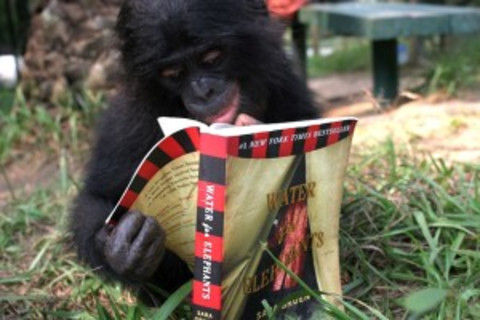
Ape House


